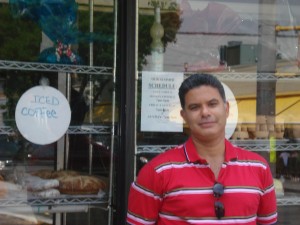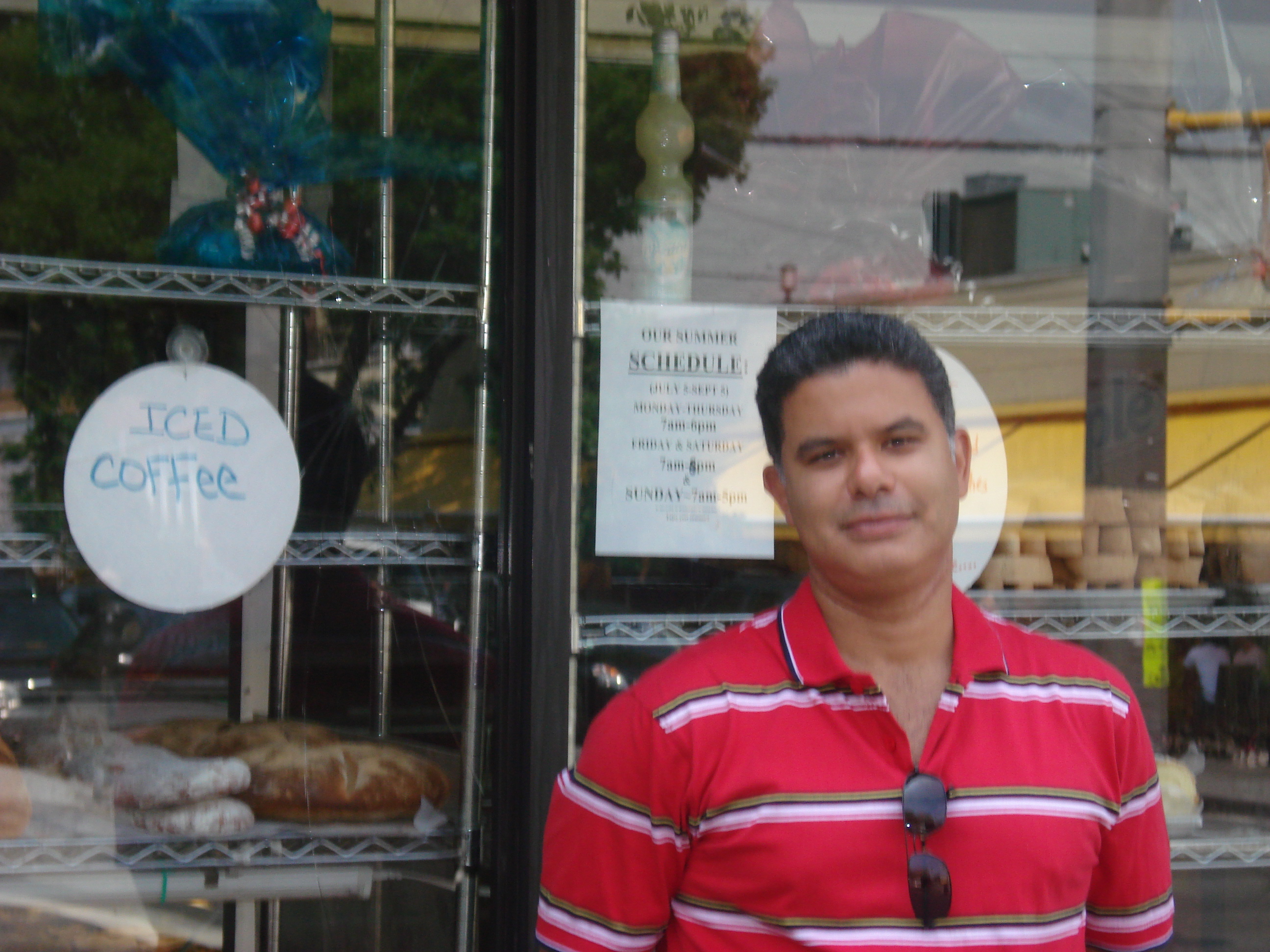
An up-front disclosure: Carlos Hiraldo is my husband. We spoke for this interview in our apartment, on the third floor of a house on 30th Drive. 30th Avenue is the main street we go down every day, for everything – to buy food, to take our son to daycare or the playground, to get the subway for work and elsewhere. To get a drink, or just to stroll…
Carlos is an English Professor and a writer. He teaches at La Guardia Community College, part of the City University of New York. Much of what he teaches is composition, often using novels and poems to do so. “The students are of all ages and from all over the world,” he says. “La Guardia calls itself the ‘World’s Community College’. Slogans are slogans but to an extent it’s true.”
Carlos says the most satisfying part of his work is seeing his students improve as writers. The challenge is dealing with those who don’t. “It’s hard to admit as an educator in this country that not every student is going to learn, not every student is going to pass. The rhetoric is that everybody can learn and do well. Obviously that’s just not the case.”
His academic writing focuses on identity. “Whether that’s race, or class, etc. What is your identity, how do you deal with it, and how do you make it a positive rather than a negative. Often identity can be a negative. If for example people believe that being Latino or being black is being uneducated, then that’s an identity that’s harming you. So it’s teaching people to be flexible about their identity.”
Carlos also writes poems. “I don’t have a method. They just come from my life, from feeling something strongly.” (Two examples are here and here).
A native New Yorker, Carlos sees similar attitudes between people born here and people who move here from abroad, as opposed to those who move to New York from elsewhere in the US. “It depends on who you are. But native New Yorkers and immigrants from abroad whether they are Latinos, Asians, Eastern Europeans, tend to see the city as home and are invested in it, even if at some point they move on. Internal immigrants often see it in utilitarian terms. Like, ‘I want to be an actor so I come to New York to be an actor’, or ‘I want to be in finance, so I come to New York to be in finance.’”
Carlos was born at New York Presbyterian Hospital in upper Manhattan, in Washington Heights. His parents both came to New York from the Dominican Republic. “The first four years when my parents were together we lived on a quiet block on 171st street,” he says. “I remember green trees. For some reason I don’t remember the winters during the first few years of my life.”
An early memory from that time is him and his older sister running quickly past the ramps of the hospital opposite, calling it “el peligro,” frightened that the security guards would shoot them. “We had vivid imaginations. I guess my mom had said at some point ‘no corran por allí porque es un peligro,’ and that’s what we called it.”
Carlos’ mom worked in a factory that made dolls – Madame Alexander Doll Company – on 131st Street. “It was a luxury doll company where each doll probably cost more than she made in one day.” His father drove a cab, and would pick him up from school each day at 3pm to get a late lunch. “It meant I ate lunch late around 3 then I would eat dinner at 6 or 7. Sometimes I would also eat lunch in school because I couldn’t wait.”
At his high school in the Bronx Carlos’ teachers praised his writing. At first he wanted to be a journalist and do a communications major, then switched to work towards becoming an English professor. After studying in Boston he moved back to New York, living in Inwood for a while. He moved to Long Island to get his PhD at Stony Brook University, then returned to Washington Heights and eventually moved to Sunnyside in Queens, to be closer to the job at La Guardia which he happened to start on September 11, 2001.
Carlos moved to Astoria in 2009, when we were expecting our son. He says that Astoria stands out from other parts of the city he has lived in because there is so much going on within the neighborhood, and the long-time residents and newcomers generally mix well. “In Washington Heights there wasn’t that much to do around the area. That was true in the 70s, 80s, 90s, and even now that it’s more gentrified. There are few options in Washington Heights itself unless you’re a native Dominican, or a criminal (which is not the same thing though some might like to think so!).
“In Sunnyside there are some bars to go to, but if you haven’t grown up in the neighborhood, even if you are from New York, you don’t necessarily feel comfortable in those places. There are more places in Astoria that are inviting to all kinds. You see people in them who have probably grown up in the neighborhood and you see people who have been here just a couple of years like us.” One of Carlos’ favorite spots along 30th Avenue itself is Frank’s bakery on the corner of 36th Street. “They make the best chocolate croissants I’ve ever tasted.”
He adds: “If possible I’d like to see that mix of old and new in the people, but only the old in the buildings! The landscape is in flux and that kind of saddens me. I don’t think the whole city should look like Manhattan.”
